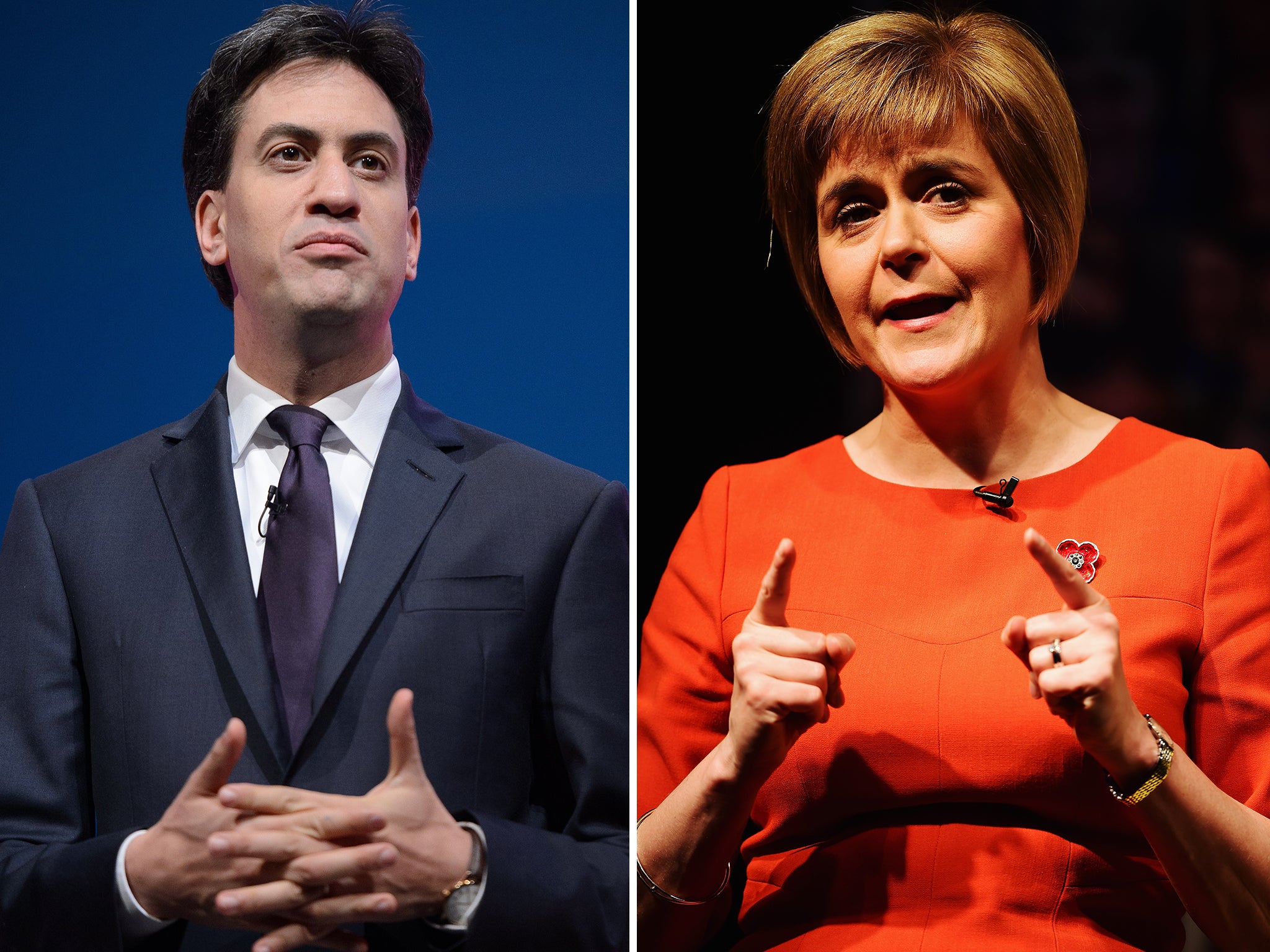General Election 2015: What would a Labour - SNP coalition look like?
Which policies do the two parties agree and disagree on?

Your support helps us to tell the story
From reproductive rights to climate change to Big Tech, The Independent is on the ground when the story is developing. Whether it's investigating the financials of Elon Musk's pro-Trump PAC or producing our latest documentary, 'The A Word', which shines a light on the American women fighting for reproductive rights, we know how important it is to parse out the facts from the messaging.
At such a critical moment in US history, we need reporters on the ground. Your donation allows us to keep sending journalists to speak to both sides of the story.
The Independent is trusted by Americans across the entire political spectrum. And unlike many other quality news outlets, we choose not to lock Americans out of our reporting and analysis with paywalls. We believe quality journalism should be available to everyone, paid for by those who can afford it.
Your support makes all the difference.With all the polls suggesting that the May general election will finish inconclusive, one possible outcome is a minority Labour government in coalition with the SNP, who are expected to win the majority of Scotland’s seats. The SNP leader, Nicola Sturgeon, has described this as Scotland’s “preferred outcome”. But how much could the two parties see eye to eye, and where do they disagree?
Independence for Scotland
This is the big problem, on which the two parties can never agree. The best they could manage is a compromise that increases the power of the Scottish Parliament, leaving the SNP dissatisfied.
Membership of the EU
Labour and the SNP are both in favour of continued EU membership (although the SNP wants Scotland to join as a separate member). No disagreement there.
Military intervention
The SNP opposed the Iraq war when Labour – though not Ed Miliband – backed it. Both parties opposed the suggestion that they intervene in the Syrian civil war in 2013. In the unlikely event that Ed Miliband, as prime minister proposed military intervention anywhere, he might be opposed by the SNP.
Trident
Labour is committed to renewing it, the SNP says abolish it, or at least get it out of Scotland. That is something on which they would have to disagree.
Austerity
Both Labour and the SNP think that George Osborne has gone too far in cutting public spending, but do not agree on how far. Nicola Sturgeon has accused Labour of being part of a “cosy consensus” and has called for a higher level of public spending than Ed Balls is proposing, but they could probably find a compromise.
Youth unemployment
The SNP had promised to 125,000 modern apprenticeships within five years, while Labour promises that all 18 to 24-year-olds who have been out of work for a year will be offered a taxpayer-funded job for six months, with those who refuse losing benefits. The approaches are different but there is underlying agreement.
The NHS
The SNP is even keener on keeping the health service free than Labour is. They have abolished prescription charges in Scotland, and have accused Labour of wanting to reintroduce them. This would not cause problems at national level, but it is a matter for the Scottish Parliament.
Green energy
Both parties are keen on extending offshore wind power generation off Scotland’s coast, so no problem there.
Police
Labour’s Yvette Cooper has promised “more police on the streets”. The SNP has promised “an additional 1,000 police officers on Scotland’s streets”. No disagreement there.
Rail links
The SNP is keen on electrification, and particularly on shorter rail journeys between Edinburgh and Glasgow. Labour’s Jim Murphy has similarly called for Glasgow and Edinburgh to be “twin power houses” – so no major disagreement there.
Join our commenting forum
Join thought-provoking conversations, follow other Independent readers and see their replies
Comments